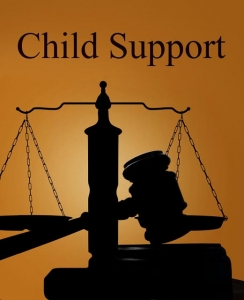
In Florida, when you receive a child support award, it comes in the form of a legally-binding court order. When a noncustodial parent refuses to pay child support, they are violating the court’s order, and this puts them in contempt of court.
Being held in contempt is a very serious matter. Refusing to pay child support can result in a warrant being issued for the noncustodial parent’s arrest. If they still don’t pay, they can be sent to jail. Florida law provides other mechanisms for compelling child support payments as well.
When Can a Noncustodial Parent be Held in Contempt for Failure to Pay?
Generally speaking, in order to be held in contempt, a noncustodial parent must refuse to pay child support even though they are financially able to do so. If your former partner or spouse lost their job, this may or may not be justification for the Court to determine that they shouldn’t be held in Contempt. Although, it will not excuse their outstanding payment obligations, and they will likely need to explain to a judge why they failed to seek modification of your child support award.
However, even in clear cases of contempt, Florida judges will often try to avoid putting parents in jail. To do so, they have a number of different tools at their disposal.
Alternatives to Jail Time for Refusal to Pay Child Support
Before (or, in some cases, in addition to) sending a noncustodial parent who is delinquent on child support payments to jail, the judge hearing the case may issue an order to try to help the custodial parent collect the overdue amounts. Separately, the Florida Department of Revenue’s Child Support Enforcement Program (CSEP) has a number of methods it uses to assist with collecting child support, and CSEP can petition the court for a contempt order as well.
Some of the options available for enforcing child support awards in Florida include:
- Establishing a payment plan – The court may establish a payment plan to allow the non-custodial parent to catch up on past-due amounts over time.
- Income deductions – If the noncustodial parent is employed, their employer may be instructed to withdraw child support from their paycheck.
- License and passport suspension – A noncustodial parent who is delinquent on child support can face revocation of their driver’s license, professional license, hunting or fishing license, or passport.
- Seizure of assets – CSEP has the authority to intercept federal tax refunds, seize unemployment benefits, withdraw money from bank accounts, and seize other assets in order to satisfy outstanding child support obligations.
- Forcing sale of real and personal property – The judge may also order sale of the noncustodial parent’s vehicles, home, and other assets in order to generate cash to pay child support.
Beller Law, PL | Child Support lawyer in Jacksonville, FL
Attorney Rebeccah Beller serves families in child support and other legal matters throughout the Jacksonville area. For more information about obtaining, modifying, or enforcing child support, call (904) 288-4414 or request an initial consultation online today.
